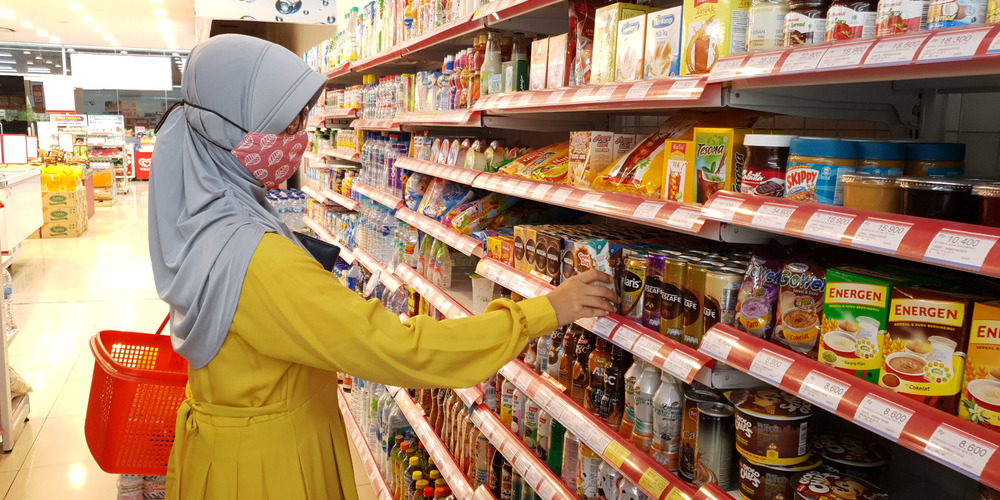
Indonesian university in Malaysian tech collaboration to ease halal certification
IsDB hopes success of new digital certification system will encourage global uptake.
The university where the concept of halal certification originated in Indonesia will be used as a test-bed for a scheme to develop a digital halal certification for small businesses in the country through an Islamic Development Bank (IsDB)-led project.
It is hoped that the “reverse transfer” initiative, lasting up to two years, will be adopted by other members of the Organisation of Islamic Cooperation if it is successful.
Universitas Brawijaya (UB), in East Java, will be supported by Malaysian halal technology company Serunai Commerce in the development of its digital system. This will enable micro, small and medium-sized enterprises (SMEs) to gain certification at a time when Indonesia is in the midst of a halal assurance frenzy.
“The first time [UB approached halal certification], we developed a simple thing in terms of food, but now we are widening our perspective of halal,” said Sasmito Djati, vice-rector of UB, at a signing ceremony in Dubai on November 14.
In 1987, Tri Susanto, a food technology lecturer at UB, mulled the idea of halal certification in Indonesia. Since then, the university has played a leading role in researching the halal value chain.
“We have had a lot of experience in developing halal at our university. We are not just looking at halal in terms of the Islamic way of thinking, but we are trying to view it more broadly, not just in terms of food but the system of halal for tourism, finance or other directions,” Djati added.
The goal of the project is to process digital certification documents for businesses that might otherwise struggle amid the bureaucratic process of transforming Indonesia into an entirely halal-certified nation.
Under rules brought in by President Jokowi in 2019, all food, beverages, meat and poultry sold in Indonesia must be certified halal and registered with the country’s regulatory authority, BPJPH, by October 2024, except for haram products such as pork and alcohol.
UB is one of several so-called halal centres that have been officially recognised by BPJPH to provide assistance to companies applying for halal certification.
These halal centres, which are all universities, are also charged with engaging in developing new halal products and processes, conducting research on the halal ecosystem, offering product testing facilities and producing qualified halal auditors.
It is understood that some 100 local business owners are waiting to apply for halal certification through UB under the direction of local authorities.
Serunai Commerce, UB’s digital partner, has developed a number of halal technology services, including a data pool of global halal manufacturers, suppliers, buyers and retailers. It also markets its Verify Halal app to help consumers track the provenance of supermarket items.
“It is a major milestone to come to this stage because we have been planning this since 2018 with BPJPH and the Ministry of Religious Affairs,” said Amnah Shaari, Serunai’s founder and chief executive. “There have been hundreds of hours of planning to make sure that all the processes are compliant, especially with IsDB.”
The initiative is backed by IsDB to the tune of a reported $2 million and is part of the bank’s reverse linkage strategy to enable the transfer of skills between Muslim countries. In this case, Serunai’s digital expertise will be used to promote digital halal capacity-building in Indonesia.
“In terms of the collaboration between Serunai and the Indonesian stakeholders, IsDB would like both parties to be permanent partners and build the halal industry across Asean,” said Aminuddin Mat Ariff, IsDB’s regional coordinator for its reverse linkage initiative.
The bank hopes the initiative will eventually be a “beacon of success for other OIC countries that can be replicated among them.”
“We see reverse linkage projects as short-term initiatives to push our stakeholders to continue into the medium and long term. We hope that both parties will do that and, over time, we will see it used it as a template for other countries,” said Aminuddin.
© SalaamGateway.com 2021 All Rights Reserved
